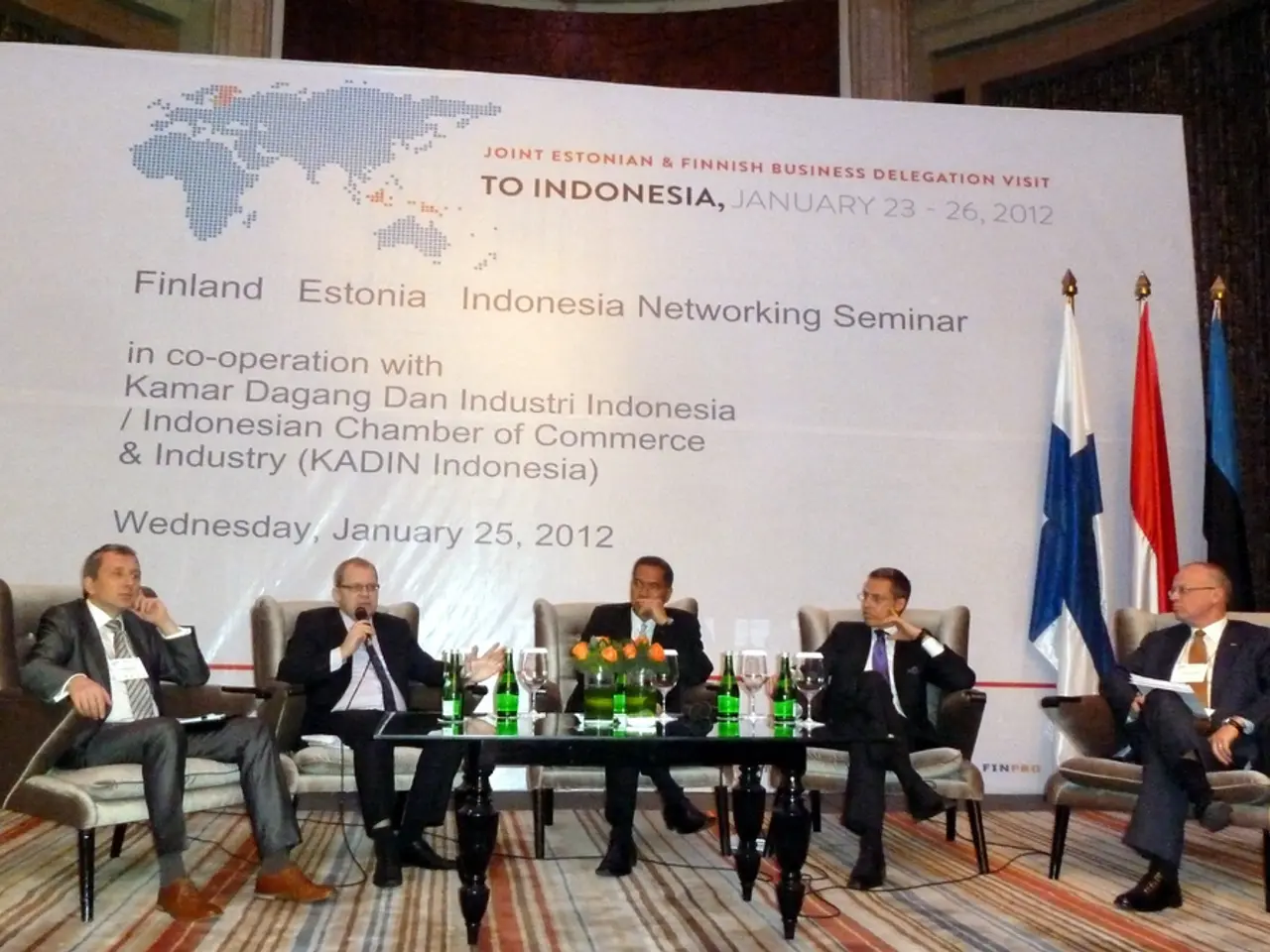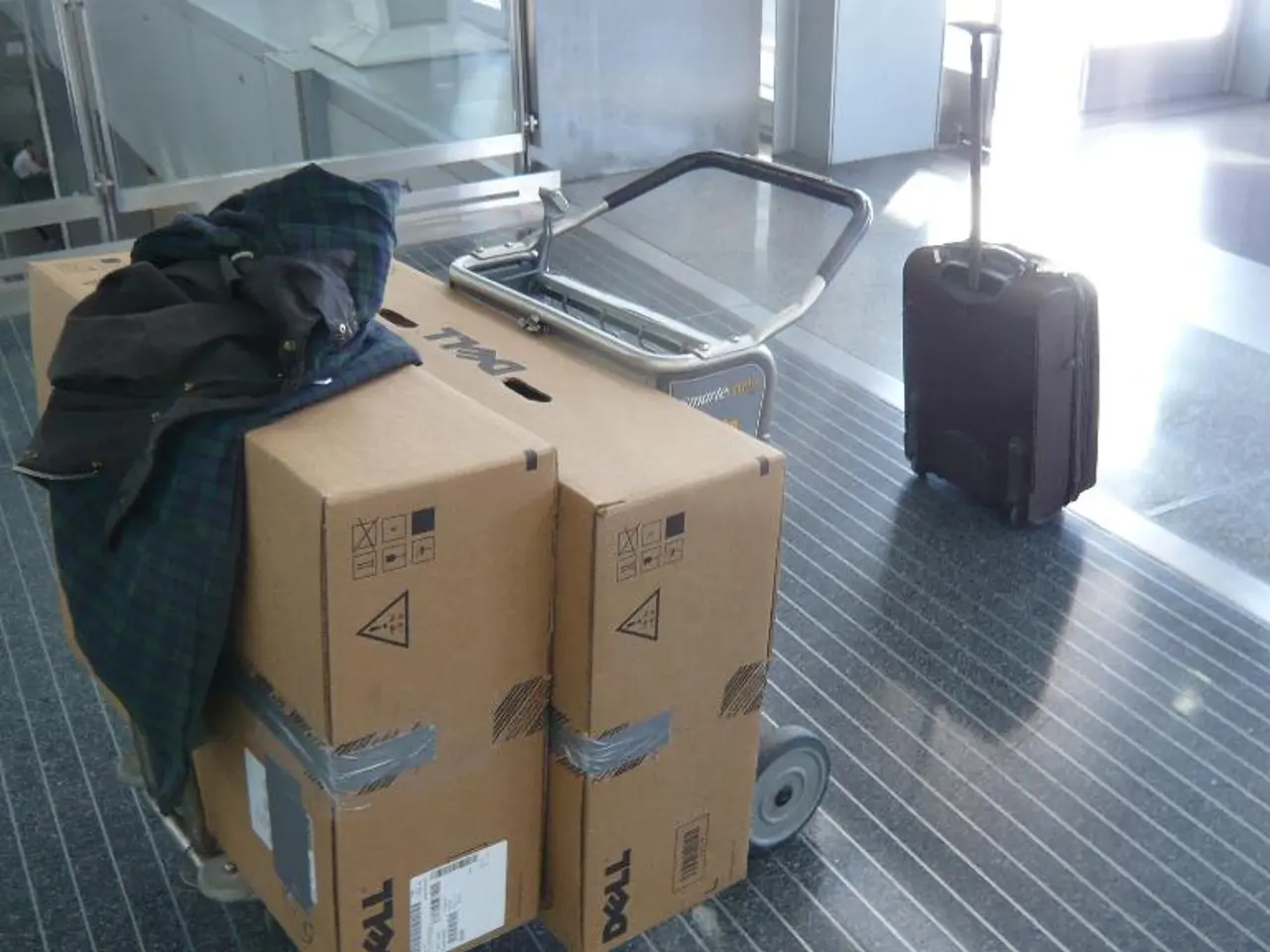Discussion on Religious Liberties in Rome: Methods, Obstacles, and the Demand for Improved Legislation
The Italian Evangelical Alliance (AEI) recently convened a conference in Rome to discuss the current status of religious freedom in Italy. The event, which took place on the 13th of February in a hall of the Italian Senate, brought together academics, politicians, and representatives from various faith communities to address the pressing issue of a unified, comprehensive framework law on religious freedom.
Damaris Marletta, of the AEI's Religious Freedom Commission, opened the conference, recalling the Alliance's decades-long commitment to promoting religious freedom. Giacomo Ciccone, president of the Italian Evangelical Alliance, later called for the adoption of such a law, emphasising its importance in securing religious pluralism and addressing the practical challenges faced by minority religions.
Lucia Stelluti, vice-president of the Italian Evangelical Alliance, chaired the second session of the conference. Senators Graziano Delrio and Lucio Malan contributed to the discussion, outlining the contours and open issues of the Italian experience regarding religious freedom. Their contributions underscored the need for legal reforms to secure religious pluralism more effectively.
Barbara Randazzo, a professor of Constitutional Law and Public Law at the University of Milan, gave the first report. She discussed the challenges religious freedom faces with the introduction of new technologies and the need to interpret and apply constitutional protections within a 'positive' secularism framework.
The speeches of Assemblies of God pastor Eliseo Fragnito and Michele Passaretti, vice-president of the Evangelical Council, highlighted historical persecution and administrative difficulties faced by evangelical Christians in their relations with the Italian State and its bureaucracy. Adriana Pagnani, communications director of the Church of Jesus Christ and Latter-day Saints, identified difficulties in renting, building, or using buildings for worship, obtaining visas, and communication problems as critical issues for religious minorities in Italy.
Imam Abu Bakr Moretta, president of COREIS (Italian Islamic Religious Community), denounced the political and administrative closure that the Islamic community has encountered. Franco di Maria Jayendranatha, president of the Italian Hindu Union, spoke of a general ignorance of religion in Italy, while Giulio Disegni, vice-president of the Union of Jewish Communities, emphasised the importance of preventing and intervening against antisemitism.
Davide Romano, director of the Adventist Institute of Florence, emphasised bureaucratic-administrative problems faced by denominations with agreements with the State due to the substantial lack of protocols or the lack of care in training officials and managers to relate to minorities and their specific needs. Enrico Raho, member of the AEI Religious Freedom Commission, highlighted faltering applications of the protection of religious freedom, particularly at local institutions and social organisations such as schools and health services.
Giuseppe Rizza, School Superintendent of the Autonomous Province of Trento, explored religious freedom in the context of schools. He stated that school should be a place where "you can quarrel without getting hurt" and balanced identities and the appreciation of diversity. Rizza also criticised the way Italian schools deal with religion, noting that the teaching of the Catholic religion (IRC), introduced in 1984, was accompanied by the possibility of making alternative choices, but these have never been adequately structured.
Ciccone highlighted the need for improvement in the Italian system, as Italy is the only country among ten with a similar concordat system that does not have a framework law on religious freedom. He mentioned the 90th anniversary of the Buffarini Guidi circular against Pentecostals (1935) and the twentieth anniversary of the death of jurist Giorgio Peyrot (1919-2005).
The conference concluded with Ciccone thanking the participants and expressing hope for a new season for religious freedom in Italy. The last session of the conference featured representatives of different minority religious denominations discussing religious freedom issues in Italy. The current status of a proposed framework law on religious freedom in Italy remains uncertain and faces significant challenges.
The Italian Evangelical Alliance's conference on religious freedom in Italy emphasized the need for a comprehensive framework law, as Giacomo Ciccone, the Alliance's president, called for its adoption to secure religious pluralism and address practical challenges faced by minority religions. The general-news surrounding the event also includes the discussions on the challenges faced by religious freedom in Italy, with issues such as administrative difficulties, religious discrimination, and ignorance of religion within the Italian society.





